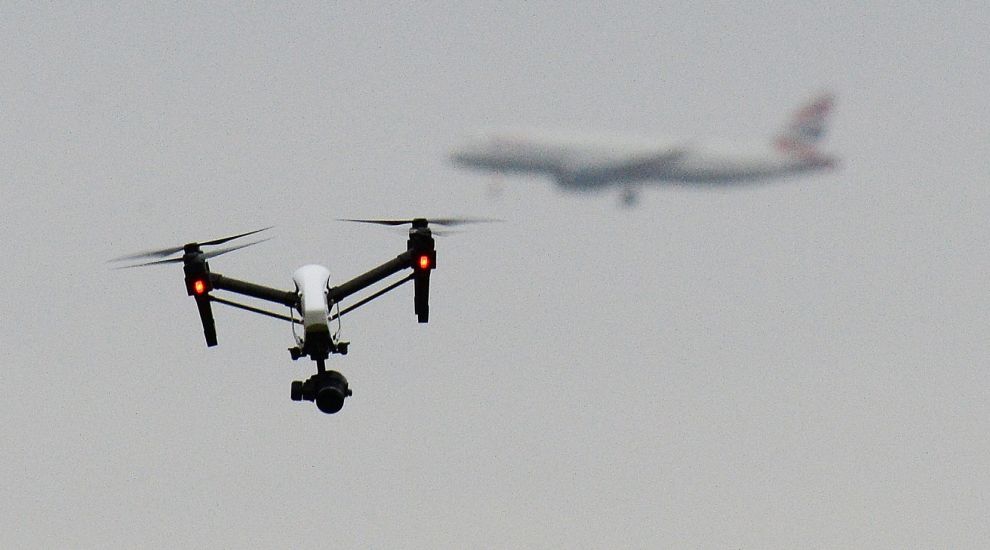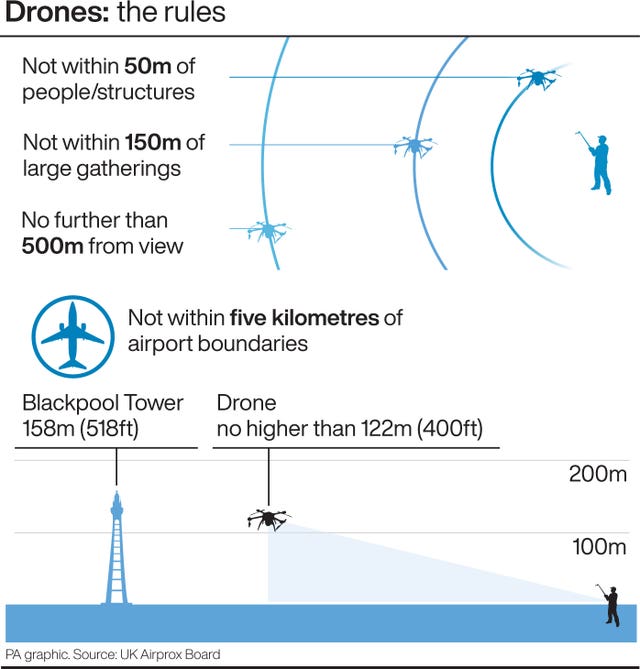
More must be done to understand the risks posed by drones to public safety and privacy, with clearer penalties, the Government has been told by a group of MPs.
The House of Commons Science and Technology Committee has been looking into the rise of drones, in a bid to address increased fears following a number of near-misses with aircraft.
It is calling for a white paper by summer 2020, that sets out plans to integrate drones into society, mitigating the risks while maximising the technology’s potential for innovations like parcel delivery and human transportation.
Keep an eye out for our report on Commercial and Recreational Drone use in the UK which goes out under embargo tomorrow, and will be published on Friday. pic.twitter.com/nbRdWol3bq
— Science and Technology Committee (@CommonsSTC) October 9, 2019
The committee wants to see clarity on penalties relating to improper drone use in a forthcoming Drones Bill, with explicit penalties on using the devices as weapons, disabling in-built safety features and failure to register them.
It expressed concern about differing accounts within the aviation community about the likely severity of damage following a drone collision with an airplane, saying there should be extensive collision testing to better understand the risk.
The British Airline Pilots’ Association (Balpa) welcomed the report, telling the drone industry to “stop downplaying or ignoring the risks”.
“I am pleased to see the Science and Technology Committee has understood the serious threat posed by drones and recommended measures to keep drones and manned aircraft apart,” said Balpa general secretary Brian Strutton.
“We support calls for further assessment of the risks they pose and have renewed our calls for further research into drone-manned aircraft collisions to be carried out urgently.
“The drone industry needs to get on board with this and stop downplaying or ignoring the risks.
“Comments made by some drone users and the drone lobby to the committee are very concerning and show a deep disbelief that drones could prove dangerous to manned flying. They can do.

“It is very simple. We all need to find ways to keep drones away from manned aircraft. We can either work together to make that happen, or the drone industry can continue to pretend there is no threat, no risk and no danger.
“Either way, Balpa will continue to put safety first and work with the Government to ensure UK airspace is shared safely by all.”
The Government is also urged to ensure a proposed new registration system – which would see model aircraft owners in the UK charged £16.50 a year – is fit for purpose and does not deter people from registering.
“Drones are an exciting technology that present the UK economy and society more generally with considerable benefits and opportunities,” committee chair Norman Lamb said.
“However, it is vital that the Government gets ahead of the curve in ensuring that drones are safely integrated into society, investing in the relevant research and technology that will create a safe airspace, if we are to fully realise these benefits in the UK.
“The Government must set out a clear vision that outlines the steps that it and other agencies will take to achieve a future vision and we hope to see a white paper no later than summer 2020.
“We know there are risks. As such, a Drones Bill must be introduced to Parliament next month. It must address the various risks – from weaponisation to the invasion of privacy—posed by drones.
“While legislation will not solve all the problems posed by drones, including nefarious drone users, it is an important step forward in making our airspace safer.
“The Government must recognise the extent of societal change that drone technology can bring about and launch a public awareness campaign that presents a realistic picture of the opportunities and risks posed by drones.”